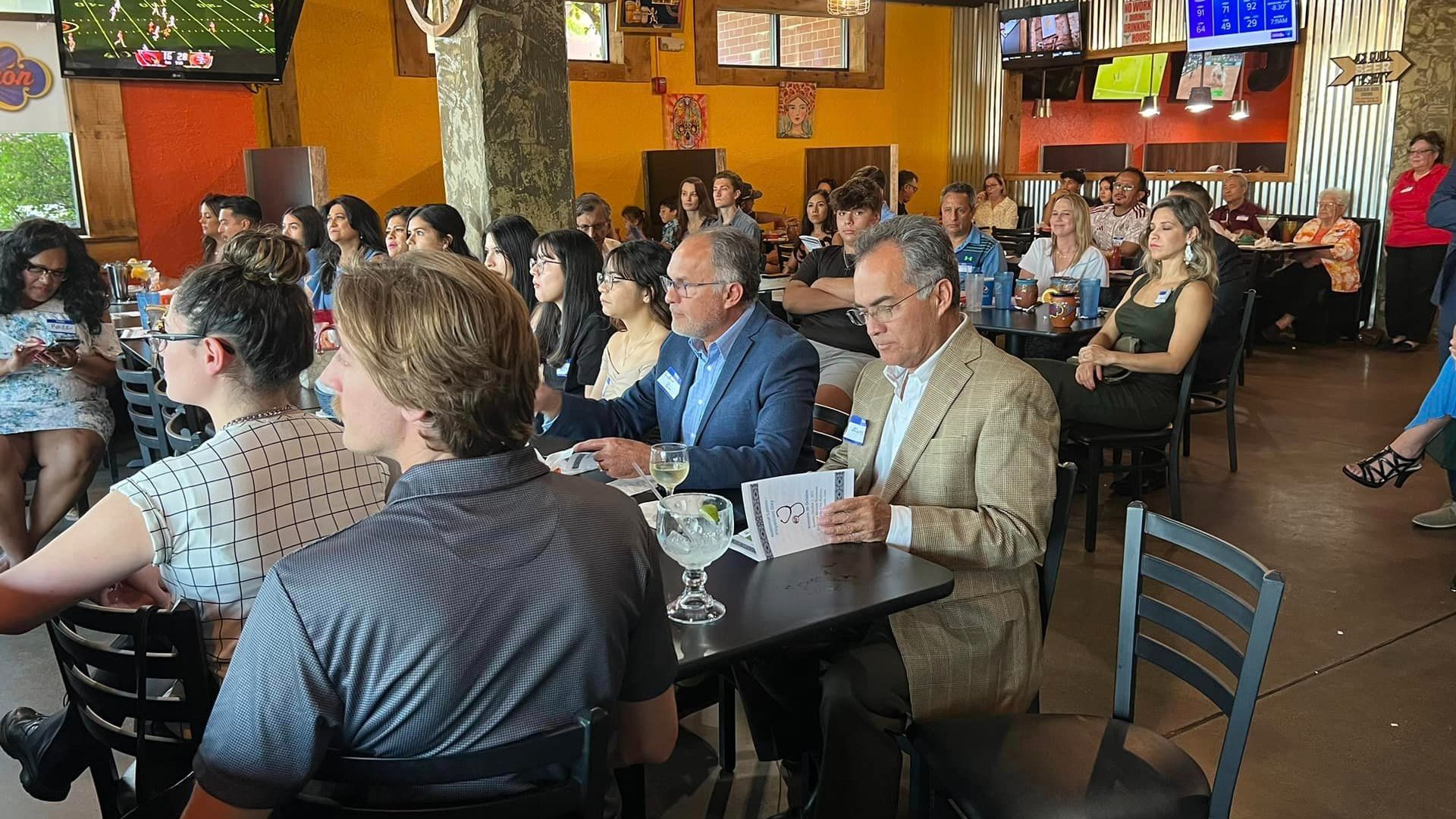WEST DES MOINES, Iowa — Latinx and Hispanic people account for nearly 20% of America's population, yet only make up 6% of practicing physicians nationwide.
A group of local doctors with MercyOne and medical students from Des Moines University believe closing that gap is important. On Oct. 1, National Latino/Latina Physician Day, they came together to hold a first-of-its-kind local event to spread that message.
For Marcos Gonzalez, a student at DMU, this room full of people wasn't just a festive get-together.
"It's amazing how many people came out and they were brave to come out," Gonzalez said.
It was fellowship paired with education and awareness as he and his classmates from Des Moines University came alongside those local Latinx doctors at this event, meeting with community members.
"They took a chance and the opportunity to meet future doctors and medical students or physicians that are already at the top of the top."
The event at El Fogon in West Des Moines is the work of Dr. Hijinio Carreon, the Regional Chief Medical Officer for MercyOne and Chief Operating Officer for MercyOne Central Iowa.
"We're trying to bring awareness for those young kids that might be sitting out there thinking that this isn't a possibility for them, that there is somebody brown that has done it and that we're here to encourage, mentor and make it known it is possible to achieve this," Carreon said.
He and his colleagues are doing this because they see those young Latinos and Latinas as a crucial piece to addressing equity in health care for the growing Latinx and Hispanic population.
"We're only six percent of the current physician workforce," Dr. Richard Salas, Chief Diversity Officer and professor at DMU, stressed to the crowd.
"My hope is that if there is one thing that people leave here tonight with, it's to say that it is possible and there are individuals within our community that want to help the next generation inspire," Carreon added.
That next generation is one Gonzalez sees as a bridge.
"This younger generation has the potential to become that connector between cultures. You come from a different culture? That's okay. Bring that good stuff from that culture and bring it to this culture. That's what's amazing about America, right?"
It's about connecting people to healthcare and connecting young Latinos and Latinas with the tools to reach their dreams.
"Manifestation is something very big. My mom used to say it. My grandma used to say it, abuelita, abuelito… every time," said Gonzalez, who is originally from Puerto Rico.
Carreon said another major equity conversation that's important is getting more Latinas into health care. Latinas make up only 2% of total practicing physicians. He said one of the first steps doctors like him can take is meeting young Latinas where they're at and mentoring them.

